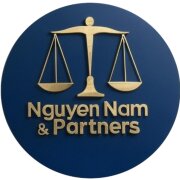Best Land Use & Zoning Lawyers in Dong Nai
Share your needs with us, get contacted by law firms.
Free. Takes 2 min.
Free Guide to Hiring a Real Estate Lawyer
List of the best lawyers in Dong Nai, Vietnam
About Land Use & Zoning Law in Dong Nai, Vietnam
Land use and zoning laws in Dong Nai, Vietnam govern how land can be used, developed, transferred, or modified. These rules help maintain orderly development, manage urban growth, protect the environment, and balance agricultural, industrial, residential, and commercial needs. Dong Nai, as an important economic and industrial province in the south of Vietnam, has experienced rapid urbanization. This makes adherence to land use and zoning policies crucial for individuals, investors, and businesses. Understanding these regulations is essential whether you are purchasing property, building a structure, investing in industry, or farming land in Dong Nai.
Why You May Need a Lawyer
Engaging a lawyer experienced in land use and zoning law in Dong Nai can be critical in several common situations. Here are some reasons you might consult a legal expert:
- Understanding or disputing land allocation or zoning decisions
- Applying for construction or land use permits
- Transferring land ownership or resolving inheritance disputes
- Resolving border disputes between neighboring properties
- Dealing with state land expropriation or compensation claims
- Securing approval for change of land use purpose
- Navigating regulations for land investments or industrial projects
- Compliance in environmental protection requirements tied to land use
- Regularizing or documenting long-term or informal land use
- Legal representation in land-related court cases or administrative hearings
Legal matters in land use and zoning can be highly technical and are subject to frequent changes. Professional legal support helps ensure your rights are protected and that your activities comply with both national law and local regulations.
Local Laws Overview
Land use and zoning in Dong Nai are primarily regulated under Vietnam's Land Law (revised most recently in 2013 and 2024), as well as local zoning and development policies issued by the Dong Nai People's Committee. Several key aspects include:
- Land Classification: Land is categorized for different purposes such as residential, agricultural, commercial, industrial, or public utility. Each category has specific regulations regarding ownership, use, and permitted activities.
- Land Use Rights Certificates: Known as "sổ đỏ," these documents provide legal evidence of an individual's or organization's right to use and/or own buildings on the land.
- Zoning Plans: Provincial and district zoning masterplans specify what can be built or operated in each area, including building height, density, and land use conversion criteria.
- Change of Land Use Purpose: Converting land from agricultural to residential, or to another permitted use, generally requires application and approval from local authorities, with various fees or taxes.
- State Land Acquisition: The government may recover land for public purposes (infrastructure, utilities, industrial zones) with compensation based on state tariffs, yet disputes often arise regarding calculations and procedures.
- Foreign Ownership: While Vietnamese nationals may own land use rights, foreigners are generally limited to leasing land for long periods (typically up to 50 years), subject to restrictions.
- Environmental and Construction Law: Projects may require extra environmental impact evaluations, construction permits, and compliance with safety and setback rules.
Local law is periodically updated to accommodate urban development, industrial expansion, and environmental priorities. With policies often interpreted differently across districts, consulting local authorities or legal professionals is essential.
Frequently Asked Questions
What types of land use are recognized in Dong Nai?
Categories include agricultural land, forestry land, residential land (urban and rural), commercial land, industrial land, public land, and special use land such as religious or cultural sites. Each category has its own permitted uses and regulations.
How can I check the zoning of a particular land parcel?
You can request zoning information at the local commune or district People's Committee, or consult Dong Nai's online land registry if available. Zoning certifications and master plans are public documents.
What is a Land Use Rights Certificate (sổ đỏ) and why is it important?
A Land Use Rights Certificate formally proves a person or organization's right to use land, build on it, transfer it, or inherit it. Without a certificate, legal transactions and constructions may be invalid or subject to penalties.
Can foreigners own land in Dong Nai?
Foreigners cannot own land in Vietnam, including Dong Nai, but they may lease land for specified terms (usually up to 50 years) and own buildings on that leased land under certain conditions.
How do I change the use of agricultural land to residential or commercial use?
You must submit an application for change of land use purpose to the relevant local land authority, pay applicable fees and taxes, and gain approval. The process involves reviewing local master plans and may be subject to quota or denial.
What should I do if the government reclaims my land?
You should receive a written notice, and you have the right to seek clarification, negotiate compensation, or appeal decisions regarding compensation or procedure. Consulting a lawyer ensures protection of your rights.
What are common reasons building permit applications are denied?
Denials can include being outside the permitted zone, exceeding height or density limits, lack of proper land use certificate, failure to follow environmental or infrastructure requirements, or discrepancies in submitted documents.
How are land disputes typically resolved in Dong Nai?
Disputes may be mediated at the commune level, determined through administrative procedures, or resolved in court. You may seek advice and representation from a legal professional at any stage.
Is it possible to subdivide or merge land plots?
Yes, but any subdivision or merger must comply with minimum area requirements, zoning laws, and infrastructure criteria. Approval from local authorities is mandatory, and proper documentation is necessary.
Where can I find assistance if I do not understand official documents or procedures?
You should contact a licensed lawyer, local land registry office, or legal aid center for support in interpreting documents, applications, and legal processes. They can guide you through each required step.
Additional Resources
For further guidance, you may contact or consult the following organizations and governmental bodies:
- Dong Nai Department of Natural Resources and Environment: Handles land administration, zoning plans, and environmental protection advice.
- Dong Nai Provincial People's Committee: Issues local regulations, zoning master plan approvals, and major land use decisions.
- District and Commune Level People’s Committees: First point of contact for individual land issues, disputes, and applications.
- Vietnam General Department of Land Administration: Maintains national regulations and guidelines on land management.
- Legal Aid Centers or Law Firms in Dong Nai: Provide legal consultation, document review, and representation in land use matters.
Next Steps
If you need legal help with land use and zoning in Dong Nai, take these steps:
- Prepare all relevant property documents, certificates, contracts, or correspondence about your land matter.
- Visit your local (commune or district) People’s Committee for preliminary clarifications or official information.
- Consult an experienced land use lawyer or legal aid center to review your specific situation and explain your options.
- Follow the correct application, appeal, or complaint process as advised.
- Maintain detailed records of all communications and official papers related to your case.
Acting promptly and seeking qualified legal counsel will help you protect your rights, avoid common pitfalls, and ensure your property transaction or development proceeds as smoothly as possible.
Lawzana helps you find the best lawyers and law firms in Dong Nai through a curated and pre-screened list of qualified legal professionals. Our platform offers rankings and detailed profiles of attorneys and law firms, allowing you to compare based on practice areas, including Land Use & Zoning, experience, and client feedback.
Each profile includes a description of the firm's areas of practice, client reviews, team members and partners, year of establishment, spoken languages, office locations, contact information, social media presence, and any published articles or resources. Most firms on our platform speak English and are experienced in both local and international legal matters.
Get a quote from top-rated law firms in Dong Nai, Vietnam — quickly, securely, and without unnecessary hassle.
Disclaimer:
The information provided on this page is for general informational purposes only and does not constitute legal advice. While we strive to ensure the accuracy and relevance of the content, legal information may change over time, and interpretations of the law can vary. You should always consult with a qualified legal professional for advice specific to your situation.
We disclaim all liability for actions taken or not taken based on the content of this page. If you believe any information is incorrect or outdated, please contact us, and we will review and update it where appropriate.










